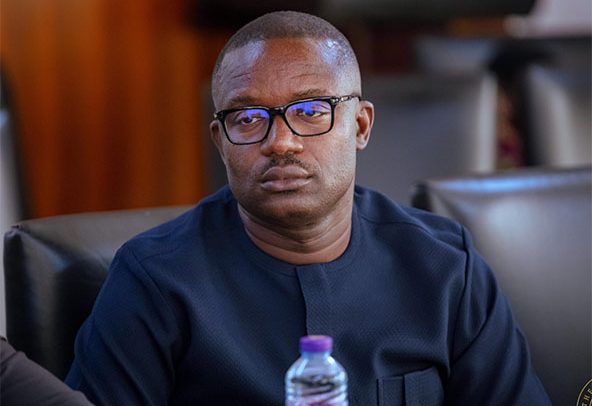John Jinapor
The Minister for Energy and Green Transition, John Jinapor, has hinted of an imminent power crisis, revealing that Ghana has only 2.6 days’ worth of fuel reserves left to sustain electricity generation.
Addressing the Parliamentary Energy Committee yesterday, Mr. Jinapor said the government urgently needs GH₵1.1 billion to procure liquid fuel for power plants or risk a nationwide blackout.
He cautioned that the country’s energy sector is on the brink of collapse if immediate financial support is not provided.
“The fuel we have will last us just 2.6 days,” he disclosed, and continued, “Although, we have placed orders for more, these must be paid for. Some fuel was even procured on credit, and we are in talks with the Ministry of Finance for payment, but they too have constraints.”
Mr. Jinapor further revealed that Independent Power Producers (IPPs) are owed over $1.7 billion, with Karpower, a major power supplier, threatening to shut down its plant by May 18 due to an outstanding debt of more than $400 million.
He blamed part of the crisis on structural weaknesses in the energy financing framework.
“Liquid fuel is not captured in the tariff structure. We are expected to procure nearly $15 billion worth of liquid fuel, which will have to be financed by the central government,” he stated.
The Minister also cited poor revenue collection by the Electricity Company of Ghana (ECG) as a significant factor. According to him, ECG currently generates a monthly deficit of GH¢2 billion, with the overall financial shortfall in the energy sector now exceeding GH¢30 billion.
“We are in a dire situation. Without resolving the fuel crisis, the stability of our power supply is in serious jeopardy,” he stressed.
In response, George Kwame Aboagye, the Ranking Member on the Energy Committee, expressed concern about the high level of unpaid bills by large institutions and Ghana’s excessive transmission losses.
“Transmission losses in Ghana are between 29 and 30 percent—far above the 8 to 9 percent average in OECD countries,” he said. “We also have a situation where many big companies are simply not paying for the electricity they consume,” he noted.
Mr. Aboagye urged the Energy Ministry to adopt stronger enforcement mechanisms to recover revenues and reduce technical losses, which are severely weakening the sector’s financial position.
The warning comes amid rising public concern over frequent power outages and growing uncertainty about the country’s energy future.
By Prince Fiifi Yorke


